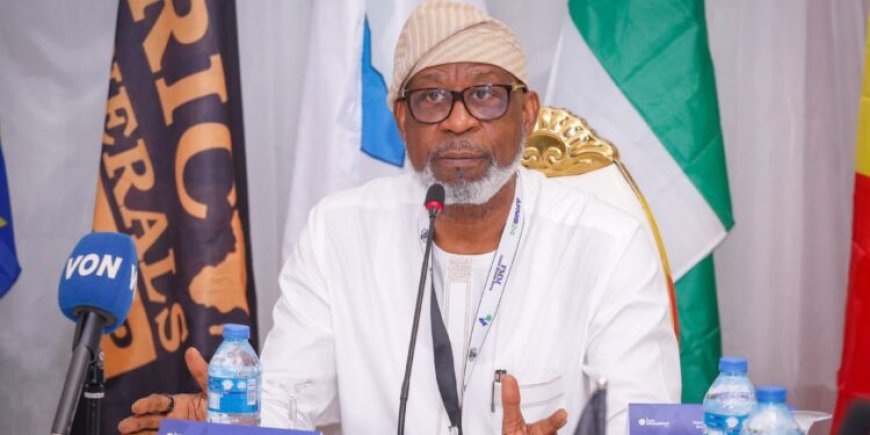Chinese firms invested over $1.3billion in Nigeria’s lithium sector – Alake

The Minister of Solid Minerals Development, Dr. Dele Alake, says Chinese companies have invested over $1.3 billion in Nigeria’s lithium processing sector since the administration of President Bola Tinubu took office.
In a statement issued by his Special Assistant on Media, Segun Tomori, on Sunday in Abuja, Alake made the disclosure while speaking at the 2025 China Mining Conference in Tianjin, themed “Connect and Collaborate, Co-Build and Co-Share.”
The minister acknowledged the growing participation of Chinese firms in Nigeria’s solid minerals sector.
“Since September 2023, when this administration assumed office, Chinese companies such as Canmax Technology, Jiuling Lithium, Avatar New Energy Nigeria Company, and Asba have invested over 1.3 billion U.S. dollars in lithium processing,” he said.
He explained that these investments have boosted Nigeria’s diversification drive and strengthened local capacity in mineral development.
“The investments have boosted Nigeria’s economic diversification efforts, reduced its dependency on oil and attracted infrastructure, technology transfer and expertise.
“Joint Ventures between Chinese and Nigerian companies in the mining sector often enhance local capabilities and skills among Nigerian workers and engineers,” he said.
Reforms in the sector
The minister urged more investors to take advantage of reforms introduced to improve the ease of doing business and ensure higher returns in the solid minerals industry.
“We have implemented several security and structural reforms, including the establishment of Mining Marshals and a satellite monitoring system for mining sites, to curb illegal mining and protect licenced operators,” he said
Alake noted that his ministry has also deployed digital systems such as the Electronic Mining Cadastre (eMC+) and the Nigerian Mineral Resources Decision System (NMRDS) to improve transparency and efficiency.
“Processing mining licence applications through the eMC+ and using the NMRDS for mineral information are improving remote transactions in Nigeria’s mining sector,” he said.
More details
As Chairman of the Africa Minerals Strategy Group (AMSG), Alake reaffirmed Nigeria’s commitment to deepening continental collaboration in mineral exploration, governance, and reporting standards.
He emphasised that Africa must build shared systems of knowledge and governance to fully benefit from its vast mineral endowments.
Alake also announced plans to enhance the regional Centres of Excellence in Geosciences and Mining Skills and expand the role of the Solid Minerals Development Fund (SMDF) in supporting early-stage exploration and de-risking investments.
The minister said Nigeria is committed to responsible mining practices that support global clean energy and sustainability goals. He urged investors and development partners to take advantage of the country’s favourable business environment and incentives, adding that the government’s vision is not only to extract minerals but to build a globally competitive mineral value chain that promotes job creation, industrial growth, and a clean energy transition.
What you should know
Nairametrics reported that the solid minerals sector in 2024 generated over N38 billion, up from N6 billion the previous year, despite operating on less than one-fifth of its allocated budget. This growth has been largely driven by the government’s policy mandating local mineral processing before export.
Several major lithium projects are now near completion, including a $600 million processing plant near the Kaduna-Niger border and a $200 million refinery outside Abuja. Two additional processing plants in Nasarawa are also expected to be commissioned before the third quarter of 2025.
- The Federal Government has allocated N1 trillion for mineral exploration this year to generate internationally certified geological data that can attract more investors.
- In May 2024, the Federal Government revoked 924 inactive mining licences, accusing some holders of using them to fuel a black market for acquiring mining titles. The cancelled permits included 528 exploration licences, 20 mining leases, 101 quarry licences, and 273 small-scale mining licences.
- Building on this, the ministry also announced plans to revoke an additional 1,000 dormant licences across Nigeria as part of ongoing efforts to clean up the licensing system and reposition the mining sector for industrial growth.
- Chinese firms invested over $1.3billion in Nigeria’s lithium sector - Alake - Nairametrics









